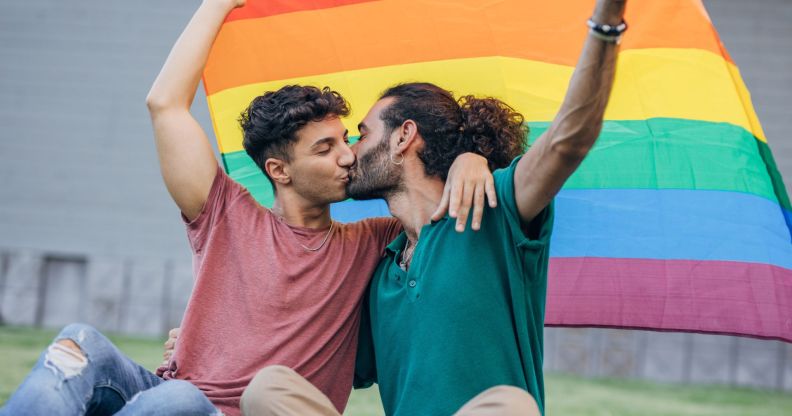Dominican High Court overturns law criminalising same-sex relations

Dominica’s High Court overturned the law criminalising same-sex relationships (Getty Images)
Dominica’s High Court has overturned the country’s ban on consensual same-sex activity, which dates back, in part, to colonial times.
The High Court ruled on Tuesday (23 April) that parts of the law that criminalised consensual same-sex activity between adults – sections 14 and 16 of the 1998 Sexual Offences Act – were unconstitutional.
Prior to the ruling, both male and female same-sex sexual activity was illegal, as was anal sex between heterosexual couples. Anyone found guilty faced a maximum penalty of 12 years’ imprisonment, and the possibility of compulsory psychiatric treatment.
The case was brought by an anonymous gay man living in the Caribbean country, who argued that the law violated his constitutional rights, the BBC reported.
The man claimed the legislation had forced him “to live in constant fear of criminal sanction for engaging in consensual sexual activity” and had provoked “hateful and violent conduct towards him and other LGBT persons”.
Justice Kimberly Cenac-Phulgence wrote in the ruling that the court found the law breached the constitutional right to liberty, freedom of expression and protection of personal privacy.
The change has been welcomed by LGBTQ+ activists worldwide, with Stonewall claiming it marked a “critical moment for LGBTQ+ rights in the Caribbean”.
The Eastern Caribbean Alliance for Diversity and Equality added that the ruling was a “win for liberty, expression, and privacy”. The LGBTQ+ organisation is currently challenging similar laws in Saint Lucia and Grenada.
Daryl Phillip, the founder of the charity Minority Rights Dominica, told the BBC: “This ruling sets [the country] on a promising path toward restoring people’s dignity, and safeguarding LGBTQ people’s rights to privacy, health and freedom from torture and ill-treatment, aligning with international human-rights obligations.”
Laws criminalising homosexuality were first imposed in several Caribbean nations by the British during the colonial era of the 1800s. Following gaining independence, several countries, including Antigua and Barbuda, Barbados, and Saint Kitts and Nevis, have legalised homosexuality.
According to Equaldex, the Caribbean countries which still criminalise homosexuality include Guyana, Grenada, Jamaica, and Saint Vincent and the Grenadines, where judges recently ruled to keep homosexuality illegal.
How did this story make you feel?

